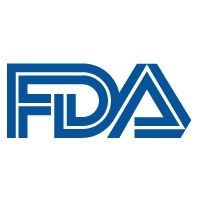FDA Approves First Serogroup B Meningococcal Disease Vaccine
The US Food and Drug Administration (FDA) today announced the approval of Trumenba, the first vaccine licensed in the US to prevent invasive meningococcal disease caused by Neisseria meningitidis serogroup B.

The US Food and Drug Administration (FDA) today announced the approval of Trumenba, the first vaccine licensed in the US to prevent invasive meningococcal disease caused by Neisseria meningitidis serogroup B in individuals 10 through 25 years of age.
According to the FDA, “meningococcal disease can be treated with antibiotics to reduce the risk of death or serious long-term problems, but immediate medical attention is extremely important. Vaccination is the most effective way to prevent meningococcal disease.”
Until the approval of Trumenba, meningococcal vaccines approved for use in the United States “have only covered four of the five main serogroups of N. meningitidis bacteria that cause meningococcal disease: A, C, Y, and W.”
Karen Midthun, MD, director of the FDA’s Center for Biologics Evaluation and Research, said, “Recent outbreaks of serogroup B Meningococcal disease on a few college campuses have heightened concerns for this potentially deadly disease. The FDA’s approval of Trumenba provides a safe and effective way to help prevent this disease in the United States.”
Meningococcal disease is a potentially deadly illness caused by bacteria transmitted from person to person through respiratory or throat secretions that infect the bloodstream and the lining that surrounds the brain and spinal cord. N. meningitidis is a leading cause of bacterial meningitis.
According to the US Centers for Disease Control and Prevention, about 500 cases of meningococcal disease were reported in the United States in 2012, with 160 cases caused by serogroup B.
Approval was based on efficacy data from 3 clinical trials conducted in the United States and Europe that enrolled approximately 2,800 adolescent participants.
Among participants who received three doses of Trumenba, after vaccination, 82 percent had antibodies in their blood that killed four different N. meningitidis serogroup B strains, compared with less than 1 percent before vaccination.
The safety of Trumenba was assessed in approximately 4,500 individuals who received the vaccine in studies conducted in the United States, Europe, and Australia. The most commonly reported side effects by those who received Trumenba were pain and swelling at the injection site, headache, diarrhea, muscle pain, joint pain, fatigue, and chills.
The FDA used the accelerated approval regulatory pathway to approve Trumenba (which was also granted breakthrough therapy status, further expediting the process). In the FDA’s evaluation for accelerated approval, “evidence of effectiveness was demonstrated by the ability of Trumenba recipients’ antibodies to kill the four representative N. meningitidis serogroup B test strains.”
As part of the accelerated approval process, the FDA will require the manufacturer to conduct further studies to verify Trumenba’s effectiveness against additional strains of N. meningitidis serogroup B.
Trumenba is manufactured by Wyeth Pharmaceuticals Inc., a subsidiary of Pfizer Inc.